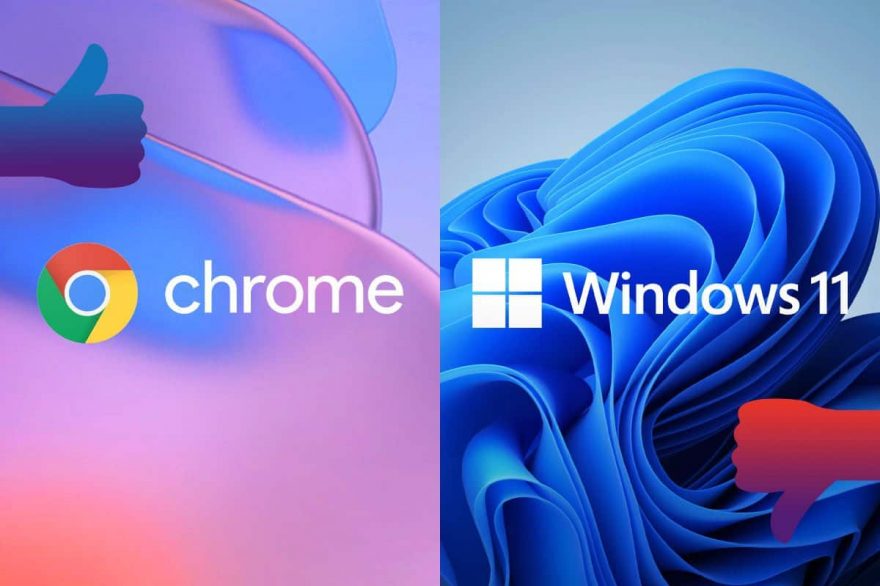Chrome OS vs. Windows. They are the most used operating systems today, in the following post we will tell you what their main differences are and which one would best suit your needs.
1. What is an operating system?
An operating system (OS) is a software program that manages computer hardware and software resources and provides common services for computer programs. It acts as an interface between the computer hardware and the software applications, allowing them to communicate and work together.
The operating system is responsible for managing computer resources such as the CPU, memory, storage devices, input/output (I/O) devices, and network connections. It also provides a user interface through which the user can interact with the computer system, and it controls the execution of application programs.
Examples of popular operating systems include Microsoft Windows, macOS, Linux, Android, iOS, and Chrome OS. Each operating system has its own unique features, user interface, and capabilities, but they all serve the same fundamental purpose of managing computer resources and providing a platform for running software applications.
2. Chrome OS
Chrome OS is a Linux-based operating system developed by Google. It is designed to work primarily with web applications and cloud computing, and is optimized for devices such as Chromebooks, Chromeboxes and Chromebases.
Chrome OS is built around the Chrome web browser, and is designed to be simple and easy to use. The user interface is minimalist and focuses on web apps, with a taskbar at the bottom of the screen and a start menu in the bottom left corner. Chrome OS also supports Android apps, giving users access to a wide range of mobile apps from the Google Play Store.
One of the key features of Chrome OS is its integration with Google's suite of cloud services, such as Google Drive, Google Docs and Gmail. This allows users to store and access their data and documents online, as well as collaborate with other users in real time.
Because Chrome OS is designed to be lightweight and nimble, it tends to run faster and more efficiently than other operating systems on low-powered devices. It also has built-in security features, such as automatic updates, isolated processes and verified boot, which help protect the system from malware and other security threats.
3.Windows
Windows is a family of operating systems developed by Microsoft Corporation. It is one of the world's most widely used operating systems and is found on millions of personal computers, laptops and servers.
Windows has a graphical user interface (GUI) and supports a wide range of software applications, including office productivity tools, games, media players and web browsers. It also supports hardware devices such as printers, cameras and scanners.
One of the key features of Windows is its support for multiple user accounts, allowing different users to have their own customized settings and preferences on the same computer. It also has advanced networking features, which allow users to connect to other computers and devices on a network, as well as access the Internet.
Windows has gone through many iterations over the years, with major versions such as Windows 95, Windows XP, Windows 7, Windows 8 and the current version, Windows 10. Each version has added new features and improved system performance. Each version has added new features and improved performance, and Microsoft continues to develop and update Windows with regular updates and new releases.
4. Which is more secure, a Chrome OS or a Windows?
Both Chrome OS and Windows have their own security features, and it is difficult to say which is more secure overall. However, there are some differences between the two operating systems that can affect their security.
Chrome OS is designed to be very secure, with built-in features such as automatic updates, isolated processes, verified boot and a very restricted user environment. These features help protect the system from malware and other security threats, and make it difficult for attackers to access sensitive data.
Windows, on the other hand, has a more complex security model due to its long history and the wide range of applications and hardware it supports. While Windows also has built-in security features such as firewalls, anti-virus and automatic updates, it is often targeted by malware and other attacks due to its popularity and widespread use.
Ultimately, the security of an operating system depends on a number of factors, such as user behavior, the type of applications and hardware used, and specific security features and settings. It is important to keep both Chrome OS and Windows up to date with the latest security patches and to follow online security best practices, such as using strong passwords, avoiding suspicious websites and downloads, and being cautious when opening email attachments or clicking on links.
6. Differences between Chrome OS and Windows
6.1. Interface and desktop
One of the main differences between both operating systems is their interface. Although the appearance of Windows is one of the most familiar (even after many updates), it is known for having a more classic and less intuitive appearance. However, in the latest updates it has improved these aspects.
Instead, although the desktop of Chrome may be less familiar to us, its intuitive and simple interface makes the experience of browsing in its environment very good and becomes one of its strengths.
6.2.Ecosystem and applications
If the two operating systems are compared based on default applications, Chrome OS is ahead of Windows. In Windows we find a store (Microsoft Store) with useful applications, but not very varied. Instead, Chrome OS supports apps from google play. This considerably opens up the range of possibilities and available apps.
6.3.Default browser
Although the possibilities of choosing a browser are becoming more and more flexible, each operating system has one as default. This influences some of the main functions offered by the operating system.
In the case of Windows, as many of us already know, defaults to the famous (and repudiated) internet explorer. Instead, Chrome OS has Google Chrome, one of the most used browsers regardless of the operating system. This also influences the number of extensions and web applications that its main operating system, Chrome OS, has.
6.4. Updates
One of the aspects that most concerns businesses is device maintenance and updating. In the case of Windows, it has one good update system, but can sometimes be slightly confusing and annoying.
In Chrome OS the constant updates are eliminated. This saves a lot of IT effort for many companies.
6.5. virtual assistant
![]() Cortana: the Windows virtual assistant that can perform tasks such as searching the web, creating reminders and scheduling calendar events. It can also integrate with third-party apps such as Spotify and Uber.
Cortana: the Windows virtual assistant that can perform tasks such as searching the web, creating reminders and scheduling calendar events. It can also integrate with third-party apps such as Spotify and Uber.
![]() Google Assistant: Google's virtual assistant that integrates with Chromebook devices, Android phones and the Chrome browser on any operating system. It can perform tasks such as searching the web, controlling smart home devices, and scheduling reminders and events.
Google Assistant: Google's virtual assistant that integrates with Chromebook devices, Android phones and the Chrome browser on any operating system. It can perform tasks such as searching the web, controlling smart home devices, and scheduling reminders and events.
7. Is Chrome OS right for your business?
If you want a simple, cloud-based and efficient interface, YES.
The main aspect to take into account when choosing it is the professional use you make of the devices. If you think that you can only work with online applications, it is your best solution. The operating system and the devices are fully prepared to work in the cloud. It also has possibilities of working offline, for times when working online is complicated.



